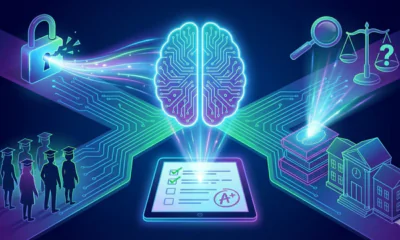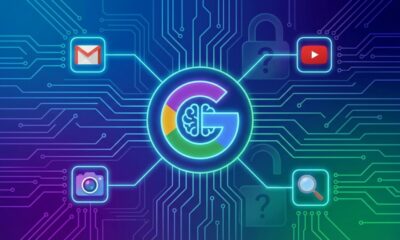Artificial Intelligence
Google Releases Bard AI to Compete With ChatGPT/GPT-4

Google has unveiled Bard, an inventive AI chatbot crafted to compete with OpenAI’s ChatGPT and Microsoft’s Bing Chat. Standing apart from its counterparts, Bard generates information directly from its model, rather than retrieving search results. Envisioned as a vital component of the Google Search experience, Bard assists users in brainstorming ideas and answering queries. Amidst an increasingly competitive landscape, Google aims to perfect and integrate Bard into its ecosystem, highlighting the company’s commitment to innovation and maintaining its dominance in the world of search.
Introducing Bard: Google’s Creative Collaborator
Google’s Bard, an advanced AI chatbot, aims to provide a seamless user experience in the realm of search and information retrieval. Developed as a response to the growing popularity of OpenAI’s ChatGPT and Microsoft’s Bing Chat, Bard showcases Google’s continued pursuit of cutting-edge technology and improvements to its search platform.
One of Bard’s unique features is its ability to generate information directly from its internal model. This sets it apart from other chatbots that rely on looking up search results to provide answers. This capability allows Bard to act as a creative collaborator, helping users brainstorm ideas, answer queries, and explore various topics.
During a live demonstration at Google’s London office, Bard showcased its versatility by providing creative ideas for a bunny-themed children’s birthday party and offering numerous houseplant care tips. This demonstrated the wide range of applications that Bard can cater to, making it a valuable addition to the Google Search experience.
Challenges and Innovations in Bard’s Development
Google has much at stake with Bard’s launch, particularly as Microsoft partners with OpenAI to challenge Google’s dominance in search. Google’s initial attempt to respond resulted in a blunder, leading to a $100 billion drop in the company’s value. Bard’s development is shrouded in secrecy, as large language models have become valuable intellectual property. It is built on a new version of Google’s LaMDA and will be updated as the technology advances. Like ChatGPT and GPT-4, Bard is fine-tuned with reinforcement learning from human feedback, leading to more valuable and less harmful responses.
Despite months of work behind closed doors, Google considers Bard experimental. The chatbot is now available for free to US and UK users on a waitlist, who will help test and refine the technology. Zoubin Ghahramani, Google’s vice president of research, has emphasized the importance of user feedback and the company’s mindfulness of potential issues with large language models.
However, other names like Margaret Mitchell, chief ethics scientist at AI startup Hugging Face and former co-lead of Google’s AI ethics team, have come out as skeptical of Google’s “experimental” label for Bard, suggesting it may be a PR tactic.
Bard is meant to complement Google Search rather than replace it. Users are encouraged to verify Bard’s responses using Google Search, and interaction limitations have been implemented to prevent the chatbot from going off track during lengthy conversations.
Google is cautious with content, prohibiting requests for explicit, illegal, harmful, or personal information. Bard also refrains from providing medical advice. A unique feature of Bard is the generation of three response drafts, allowing users to choose or combine their preferred answer, emphasizing the chatbot’s inability to generate perfect responses.
Though Google currently does not aim to replace Search, the integration of large language models into Search could happen sooner than later, given the competition with OpenAI, Microsoft, and others.












